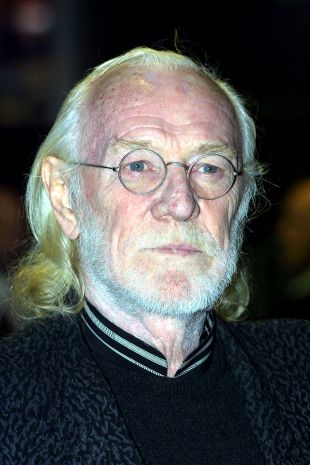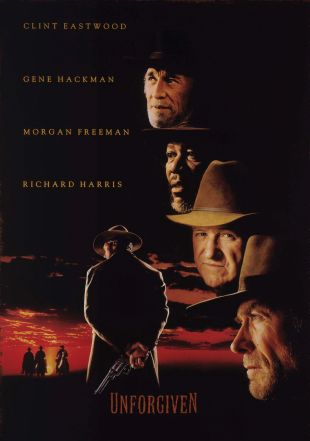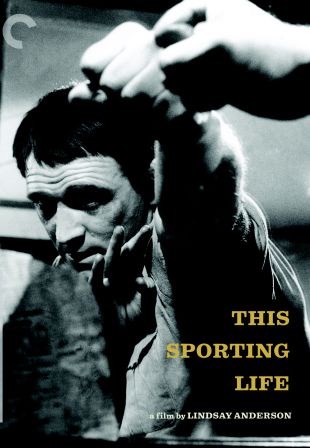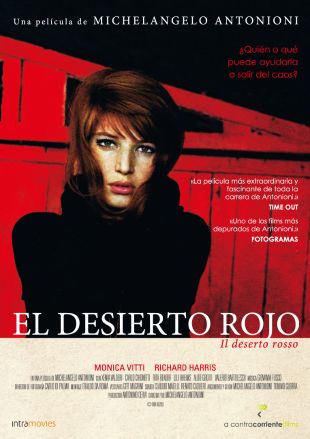Though he once declared, "I hate movies. They're a waste of time," Irish actor Richard Harris built a film career that lasted six decades and withstood a long fallow period in the 1970s and '80s. Often as famous for his offscreen exploits as his acting, Harris nevertheless was lauded for charismatic performances ranging from the tough, inarticulate rugby player in This Sporting Life (1963) to the wry bounty hunter in Unforgiven (1992) and the contemplative emperor in Gladiator (2000). After winning over a new generation of fans with Harry Potter and the Sorcerer's Stone (2001) and Harry Potter and the Chamber of Secrets (2002), Harris passed away in 2002.
Born in Limerick, Ireland, Harris was the fifth of nine children. More interested in sports than art, Harris became a top rugby player in his teens. His sports career, however, ended after he came down with tuberculosis at age 19. Bed-ridden for two years, Harris read voraciously to pass the time. Calling his illness the "luckiest thing that ever happened to me," Harris was inspired by his volumes of Samuel Beckett, James Joyce, and Dylan Thomas to pursue a creative profession. Harris left Ireland to study in London, signing up for acting at the London Academy of Music and Dramatic Arts in 1956 after he failed to find good classes in directing; he also joined the more experimental Theatre Workshop. Harris made his professional stage debut in The Quare Fellow in 1956, earning praise from Method guru Lee Strasberg. Spending the next few years on the stage, Harris appeared in Arthur Miller's A View From the Bridge and became a theater star with his turn as a drunken Dublin student in The Ginger Man (1959). Branching out to the screen, Harris appeared in the British TV movie The Iron Harp (1958), winning a contract with Associated British Pictures Corp. that lead to his feature debut in Alive and Kicking (1959). Playing Irishmen, Harris appeared alongside Hollywood heavyweights James Cagney in the IRA drama Shake Hands With the Devil (1959), Gary Cooper and Charlton Heston in The Wreck of the Mary Deare (1959), and Robert Mitchum in A Terrible Beauty (1960). After switching accents to play an Australian pilot in the World War II epic The Guns of Navarone (1961), Harris held his own as one of Marlon Brando's mutineers in The Mutiny on the Bounty (1962).
Confirming his status as one of the best of the new generation of British rebel actors that included Albert Finney and Tom Courtenay, Harris became an international movie star with This Sporting Life. One of the gritty cycle of "kitchen sink" films, This Sporting Life starred Harris as a miner's son-turned-professional rugby player who achieves success on the field at the expense of his personal life. Along with showcasing Harris' physical prowess, his tough, sensitive performance evoked the tragic anguish of Brando at his 1950s peak. After winning the Best Actor prize at the Cannes Film Festival, Harris received his first Oscar nomination. Rather than be pigeonholed, though, Harris collaborated with This Sporting Life director Lindsay Anderson on the stage production The Diary of a Madman and co-starred as Monica Vitti's lover in Michelangelo Antonioni's 1964 study of upper-middle-class malaise, Red Desert. Harris then (appropriately) co-starred as Charlton Heston's nemesis in Sam Peckinpah's butchered-cavalry epic, Major Dundee (1965). Devoting himself full-time to movies by the mid-'60s, Harris appeared with Kirk Douglas in Anthony Mann's World War II yarn The Heroes of Telemark (1965), joined the cast of island epic Hawaii (1966), raised Cain in The Bible (1966), and co-starred with Doris Day as spies caught up in a mod web of intrigue and romance in Caprice (1967). In still another change of pace, Harris tried his hand at musicals and became a dashing King Arthur in the film version of Camelot (1967). He subsequently scored a hit single in 1968 with his version of "MacArthur Park."
Always a fancier of the pubs, Harris descended into alcoholism after his first marriage ended in divorce in 1969. Rebounding professionally from the disappointing biopic Cromwell (1970) and the intermittently engaging The Molly Maguires (1970), Harris scored a box-office hit with the sleeper Western A Man Called Horse (1970). Starring Harris as a British aristocrat captured and then embraced by the Sioux after a then-notably gory initiation, A Man Called Horse found a large audience for its pro-Indian sympathies and macho rituals, spawning two less-popular sequels The Return of a Man Called Horse (1976) and Triumphs of a Man Called Horse (1983). Returning to his original career goals, Harris stepped behind the camera to direct and write, as well as star as an aging soccer player in, The Hero (1971). As the 1970s went on, however, Harris' well-publicized hell-raising with famous drinking buddies Peter O'Toole and Richard Burton became more entertaining than his movies. Summing up the period as "drifting from one piece of crap to another," Harris funded his offscreen antics with such works as The Deadly Trackers (1973), Ransom (1974), Orca: The Killer Whale (1977), The Ravagers (1979), and The Bloody Avengers (1980). The Wild Geese (1978), at least, featured Burton as Harris' onscreen co-star, while Juggernaut (1974) and The Cassandra Crossing (1976) were mildly engaging disaster thrillers. Plunging to his career low in the early '80s with his appearance as Bo Derek's father in the risible Tarzan, the Ape Man (1981), and experiencing personal lows with his divorce from second wife Ann Turkel and dire warnings about his health, Harris quit drinking and took a sabbatical from movies. He published the novel Honor Bound in 1982.
Still, Harris continued to perform during the 1980s, reprising his role as King Arthur in the touring company of Camelot. After he showed that he still had his serious acting chops in a 1989 production of Pirandello's play Henry IV, Harris recovered his film actor credentials with The Field (1990). Though the film received a limited release, Harris' commanding performance as tenant farmer Bull McCabe earned the actor his second Oscar nomination. Harris was back for good with his lively turn as an IRA gunman in the summer blockbuster Patriot Games (1992) and his self-mythologizing bounty hunter English Bob in Clint Eastwood's Oscar-winning Western Unforgiven. Harris garnered still more positive reviews for his performances opposite Robert Duvall in the amiable character study Wrestling Ernest Hemingway (1993), and as a South African landowner in the remake of Cry, the Beloved Country (1995). Though his stint with Camelot had made him a fortune and he preferred hanging out at the local pub (imbibing his Guinness in moderation) to going Hollywood, Harris refused to retire as the 1990s went on, appearing in the adaptation of Smilla's Sense of Snow (1997) and To Walk With Lions (1999). Bringing a majestic gravitas to a cameo role, Harris earned Oscar buzz (though unfulfilled) for his Marcus Aurelius in Gladiator. Acquiescing to his granddaughter's wishes, Harris subsequently accepted another blockbuster project and agreed to play Albus Dumbledore in Harry Potter and the Sorcerer's Stone and Harry Potter and the Chamber of Secrets. After shooting the Potter movies, Harris delivered a final superb performance as a gangster King Lear in My Kingdom (2001).
Though he predicted that he'd recover in time to begin the third Potter movie, Harris passed away from Hodgkin's disease in October 2002. He was survived by his three sons, actors Jared Harris and Jamie Harris, and director Damian Harris.



